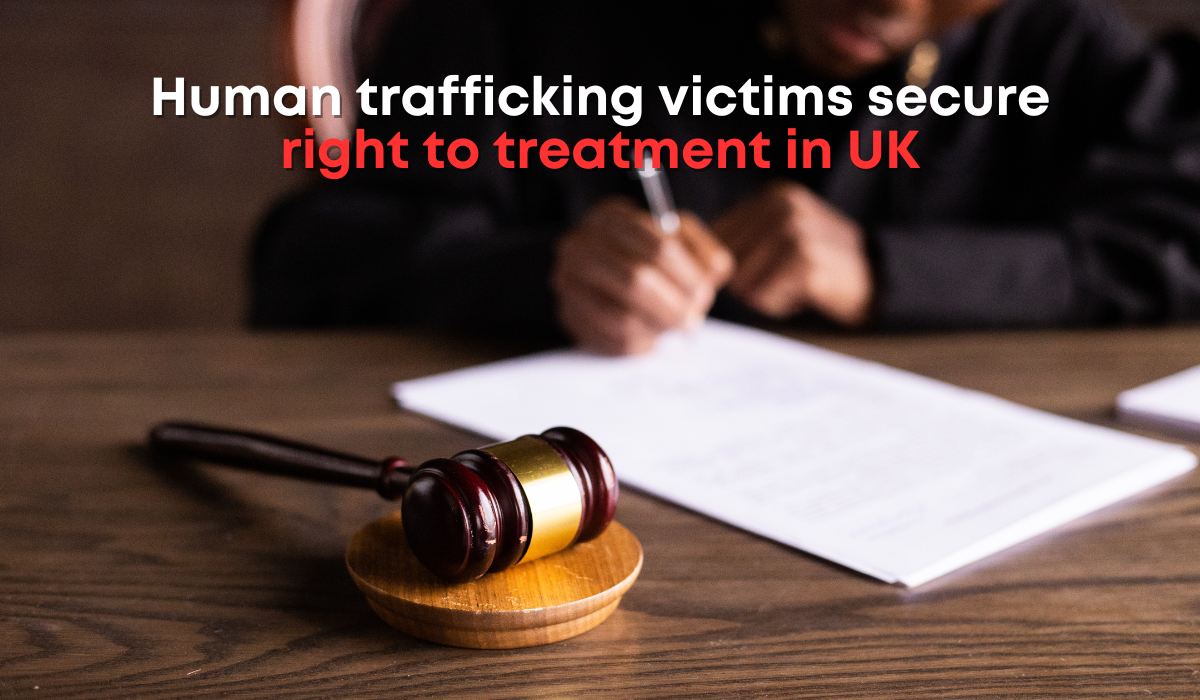In a significant policy shift, the Home Office has agreed to reconsider its previous decisions to refuse temporary leave to thousands of human trafficking victims in need of treatment. This development comes after a legal challenge brought by human trafficking victims, highlighting the Home Office’s initial stance that individuals could access necessary treatments in their home countries or be removed if not actively undergoing treatment in the UK.
Background and legal challenge
The Home Office had previously maintained that human trafficking victims could be deported despite their need for medical treatment, arguing that adequate care could be provided in their home countries. This policy faced a robust legal challenge from human trafficking victims and their legal representatives, who argued that many victims could not receive appropriate mental health support in their countries of origin. One such case involved a Vietnamese man who had been exploited and subjected to forced labour and threats against his family. Despite being diagnosed with PTSD, depression, and anxiety, he was initially denied temporary permission to stay in the UK for treatment.
Legal victory for trafficking victims
The settlement of this case marks a pivotal victory for trafficking victims. Lawyers representing the victims emphasized the significance of this outcome for heavily traumatized individuals who had previously been left in a state of uncertainty and at high risk of re-trafficking. The settlement ensures that the Home Office will reconsider the decisions to refuse temporary leave, potentially allowing victims the necessary time and stability to recover from their traumatic experiences.
What is the impact of this decision on trafficking victims?
The Home Office’s agreement to settle this case and reassess previous refusals is expected to have a profound impact on the lives of trafficking victims. It acknowledges the severe psychological and physical harm inflicted on these individuals and the importance of providing them with the necessary support to rebuild their lives. This move is seen as a step towards a more humane and lawful approach to handling cases of modern slavery and human trafficking.
Unlawful pause in decision making
In a related case involving an asylum seeker from Sudan who was trafficked in Libya, it was revealed that the Home Office had unlawfully paused decisions on the cases of trafficking victims for over a year. This pause, which was only admitted recently, had prevented vulnerable asylum seekers from receiving timely and lawful assistance. The delay added to the suffering and instability experienced by these individuals, obstructing their access to necessary support for recovery.
What are the future implications?
The Home Office’s acknowledgment of its previous shortcomings and commitment to reconsidering its stance marks a crucial turning point in its handling of trafficking victims. This policy reversal underscores the need for a more compassionate and legally sound approach to immigration and asylum cases. By addressing the unique needs of trafficking victims and ensuring they receive appropriate care and support, the UK can take a significant step towards eradicating the barbaric crime of human trafficking and providing justice and recovery for its victims.
This recent development highlights the importance of legal challenges in advocating for the rights of trafficking victims and ensuring that government policies align with humanitarian principles and legal obligations. The Home Office’s U-turn provides a glimmer of hope for thousands of individuals who have suffered unimaginable horrors and underscores the necessity of ongoing vigilance and advocacy in the fight against human trafficking.
Get in touch: For a comprehensive understanding of your options or queries on UK immigration matters, contact GigaLegal Solicitors at 02074067654 or click here to book a no-obligation consultation with an immigration expert.


